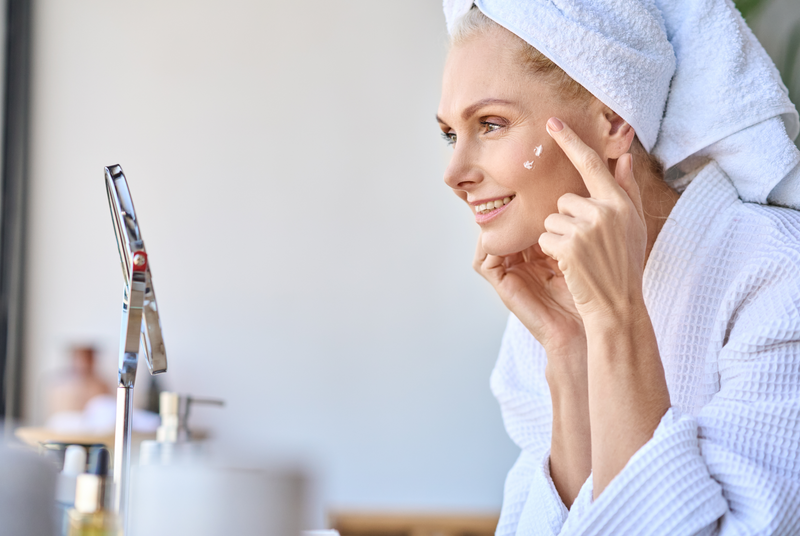Skincare Ingredients to Avoid: Beautician's Guide
In the world of beauty and skincare, the quest for flawless skin is an endless journey. As a beautician, you are at the forefront of this journey, guiding your clients to achieve their skincare goals. However, one crucial aspect often overlooked is identifying which skincare ingredients to avoid. Understanding these ingredients can be the difference between radiant skin and an unwanted breakout.
The importance of knowing skincare ingredients to avoid cannot be overstated. Many products on the market boast transformative results, but not all of them are suitable for every skin type. This guide aims to enlighten beauticians on the potentially harmful ingredients lurking in skincare products and how to steer clients towards healthier choices.

The Dangers Lurking in Common Skincare Products
While many skincare products promise to enhance beauty, they can sometimes contain ingredients that do more harm than good. Understanding these ingredients is vital for any beautician dedicated to their craft. Here are some common skincare ingredients to avoid:
1. Parabens
Parabens are preservatives used in cosmetics to extend shelf life. While they effectively prevent bacterial growth, studies suggest they can disrupt hormone function. For clients with sensitive skin or hormonal imbalances, avoiding parabens is a wise choice. For more information on building a safe skincare routine, visit this guide on skincare routines.
2. Sulfates
Sulfates are cleansing agents found in many foaming products like cleansers and shampoos. While effective at removing dirt and oil, they can strip the skin of its natural oils, leading to dryness and irritation. Beauticians should recommend sulfate-free alternatives for clients with dry or sensitive skin.
3. Artificial Fragrances
Fragrances are added to products to make them more appealing, but they are a leading cause of allergic reactions and skin irritation. For clients with sensitive skin, fragrance-free products are the safest bet. To learn more about how to maintain healthy skin, this article on healthier skin routines is a great resource.
4. Alcohol
Alcohol in skincare products is often used to help ingredients penetrate the skin, provide a quick-drying finish, or act as a preservative. However, it can also be incredibly drying and irritating, especially for those with sensitive skin. Beauticians should be cautious when recommending products containing alcohol.
How to Identify Harmful Ingredients
Identifying harmful ingredients in skincare products can be challenging, especially with the complex ingredient names. Heres a quick guide for beauticians to help their clients:
Read the Ingredients List
The first step is always to read the ingredients list. Ingredients are listed in order of concentration, so the first few ingredients are the most important. Look out for the harmful ingredients mentioned above and steer clear of them.
Educate Clients
As a beautician, educating your clients on what to look forand avoidin their skincare products is crucial. Encourage them to do their research and bring products to you for evaluation. You can also direct them to helpful resources like this article on vitamins for skin health.
Alternatives to Harmful Ingredients
While some ingredients should be avoided, there are plenty of safe alternatives available:
Natural Preservatives
Instead of parabens, look for products with natural preservatives like vitamin E or rosemary extract.
Gentle Cleansers
For those avoiding sulfates, opt for gentle, sulfate-free cleansers that maintain the skins natural moisture balance.
Essential Oils
Instead of artificial fragrances, essential oils can provide a natural scent without irritation.

FAQ
What are the top skincare ingredients to avoid?
Common ingredients to avoid include parabens, sulfates, artificial fragrances, and alcohol due to their potential to irritate skin and disrupt hormonal balance.
Are natural skincare products better?
Natural products often avoid harmful synthetic ingredients, but its essential to read labels as natural doesnt always mean safe for every skin type.
How can I help my clients choose safe products?
Educate your clients on reading ingredient labels, recommend products with fewer harmful chemicals, and regularly update your knowledge on skincare advancements.
By staying informed and cautious about the skincare ingredients to avoid, beauticians can help clients achieve healthier, happier skin. Remember, the goal is not just beauty, but well-being as well. For more tips and advice, this Gua Sha guide might be of interest.
This article contains affiliate links. We may earn a commission at no extra cost to you.

